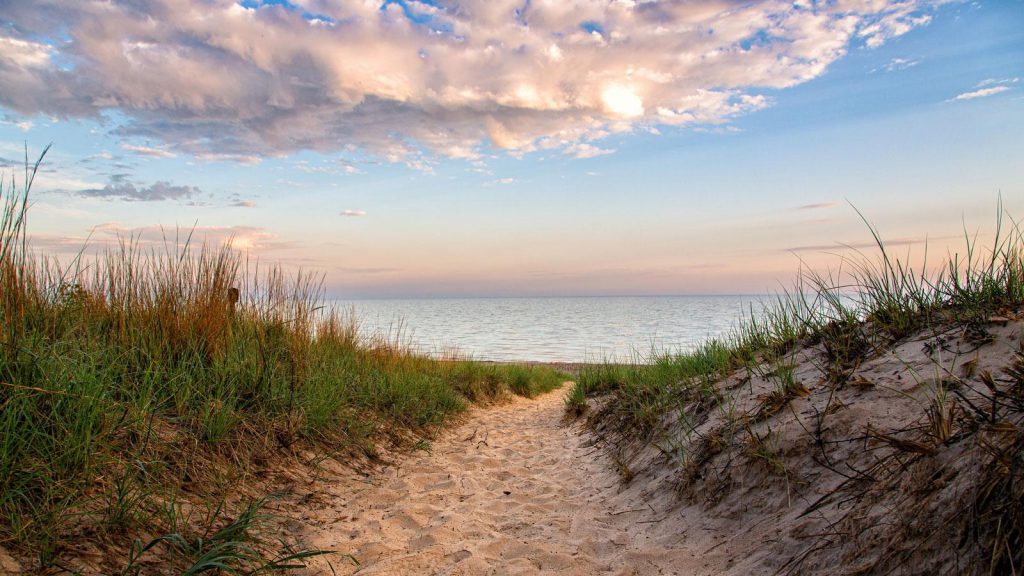Content
Surrounding, diverse, and full of natural beauty, the Indiana Dunes National Park is a hidden treasure in the heart of the United States. Along the shores of the mighty Lake Michigan, this impressive park spans over 15,000 acres, providing a captivating blend of beaches, forests, wetlands, and, of course, its iconic sand dunes. From thrilling outdoor activities to rich ecological diversity, there is much to discover in this park. Immerse yourself in the wonder of the Indiana Dunes National Park located in the state of Indiana.
Introduction to the Indiana Dunes National Park
Brief History
Designated as a National Park in 2019, the Indiana Dunes National Park has a rich and complex history dating back thousands of years. This park has witnessed the passage of native civilizations, European settlers, and has played a crucial role in conservation efforts of the Great Lakes region.
Location and Geography
Located in northern Indiana, along the southern coast of Lake Michigan, the park stretches across a vast area of 15,000 acres. Its terrain is varied, presenting an impressive mix of beaches, dunes, wetlands, and forests.
Ecological Diversity of the Park
Flora
The park is home to an impressive variety of plants. From the tall and resilient oak trees on the dunes to delicate wild orchids in the wetlands, the park’s flora is astonishingly diverse and constantly changing with the seasons.
Fauna
The Indiana Dunes National Park is a paradise for wildlife enthusiasts. Here, you can find over 350 species of birds, as well as a multitude of mammals, reptiles, amphibians, and insects. The rich animal diversity is a testament to the robustness and vitality of the park’s ecosystem.
Geological Features
The Dunes
The majestic dunes are undoubtedly the park’s most iconic feature. These sand giants, shaped over thousands of years by the winds of Lake Michigan, offer a unique landscape experience and an opportunity to connect with nature in its purest state.
Water Bodies in the Park
In addition to Lake Michigan, the park hosts numerous rivers, streams, and swamps that provide crucial habitat for wildlife and a tranquil refuge for visitors.
Wooded Regions
Along the dunes, visitors can venture into dense forests of pines and oaks. These forests offer refreshing shade on summer days and are home to many species of birds and animals.
Activities and Attractions
Hiking and Nature Walks
The park offers over 50 miles of trails that traverse its diverse terrain. Whether you prefer a leisurely stroll along the beach or a challenging hike through the dunes, there’s a trail for you.
Camping and Picnicking
The park provides several picnic and camping areas where you can relax and enjoy the beauty of the natural surroundings.
Bird Watching
With its rich birdlife, the park is a haven for bird enthusiasts. Don’t forget to bring your binoculars to have the opportunity to spot some of the 350 species that inhabit the park.
Beach Walks and Swimming
The park boasts 15 miles of beach along Lake Michigan, offering an ideal spot for swimming, sunbathing, or simply enjoying the beauty of the lake.
Winter Activities
The park doesn’t close during the colder months. In winter, you can enjoy activities like cross-country skiing or snowshoeing, transforming the park into a spectacular winter destination.
Visitor Center and Educational Exhibits
The park’s Visitor Center is a great place to start your visit. Here, you’ll find detailed information about the park, interactive exhibits that teach you about the geology and ecology of the area, and friendly staff ready to answer your questions.
Getting There and Travel Tips
Directions and Maps
Located near Chesterton, Indiana, the park is easily accessible by car. Park maps and trails are available online and at the Visitor Center.
Best Time to Visit
The park is beautiful year-round, but spring and fall are particularly stunning due to wildflowers and autumnal colors. Keep in mind that some services may be limited during the winter months.
Park Rules and Regulations
Always remember to respect the park’s rules to preserve its natural beauty for future generations. This includes not littering, staying on marked trails, and not disturbing wildlife.
Accommodation and Services
Lodging Options Inside and Outside the Park
There are several lodging options available, from campgrounds within the park to hotels and house rentals nearby. Plan ahead to secure your accommodation during the busier months.
Services and Facilities
The park offers a range of facilities to make your visit more comfortable, including restrooms, picnic areas, and a gift shop at the Visitor Center.
Conservation and Sustainability Programs
Environmental Education Programs
The Indiana Dunes National Park is dedicated to environmental education and provides programs for visitors of all ages to learn about the importance of conservation.
Conservation Initiatives
The park undertakes numerous conservation initiatives to preserve its rich biodiversity and maintain its natural beauty. These efforts range from protecting endangered species to habitat restoration.
